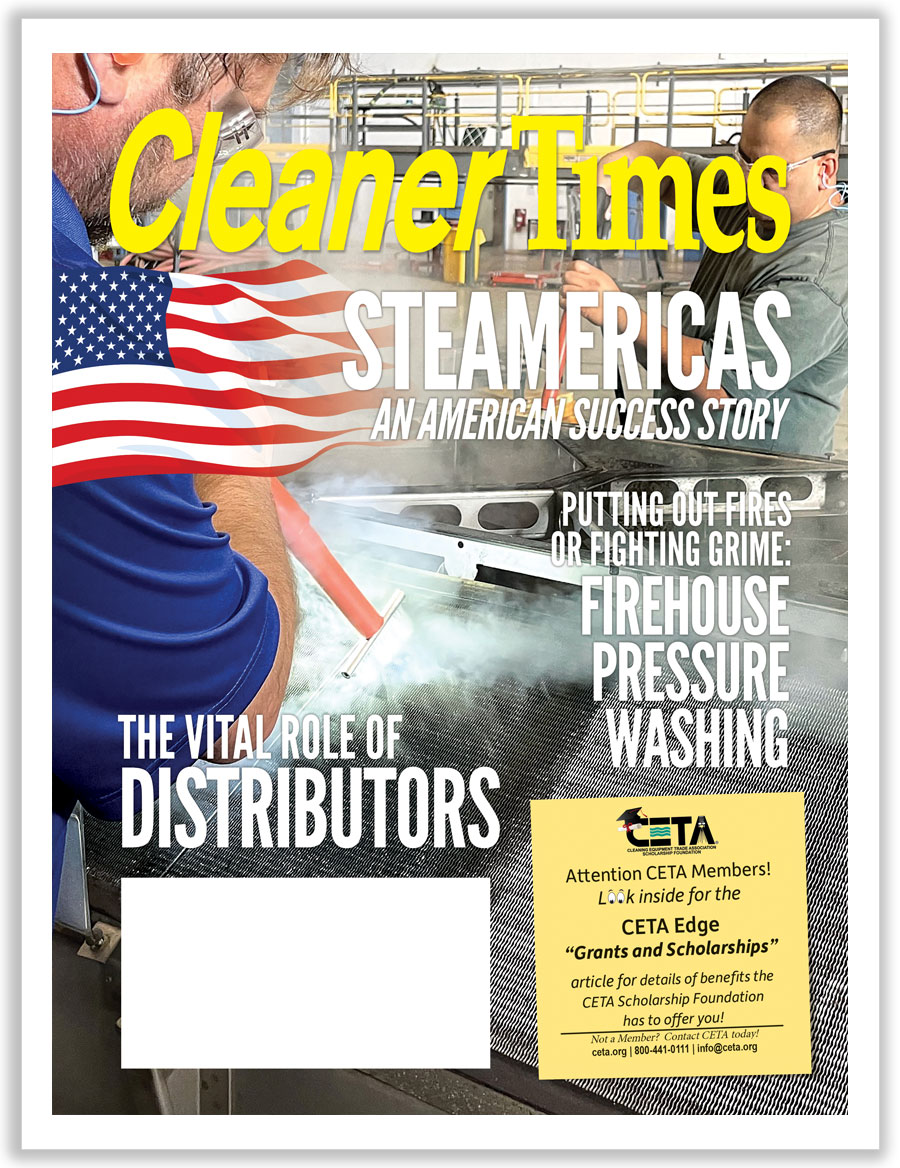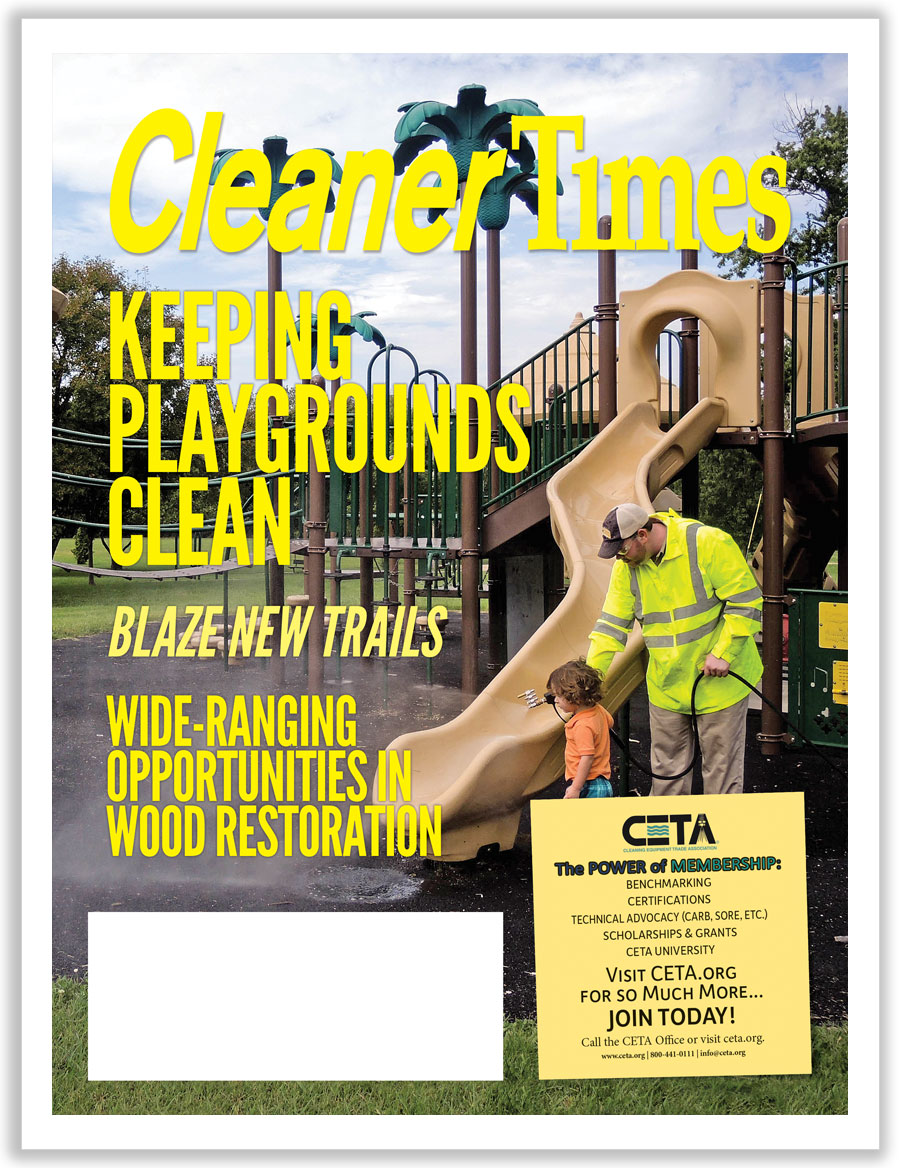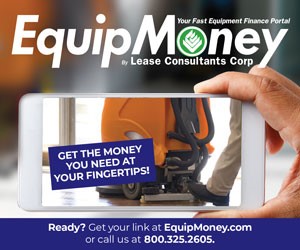
Financial: The Professional Way to Find a Pro
By Mark E. Battersby / Published December 2015

The so-called “self-made” successful contractor, business owner, or supplier is a rarity. While most owners and managers know their pressure cleaning business inside and out, in general and in detail, there are highly technical matters of law, accounting, management, and marketing that are usually best handled by outside experts.
When it comes to navigating the morass of today’s regulatory climate, bureaucracy and, whether those professionals are lawyers, accountants, insurance agents or brokers, bankers, financing professionals, consultants or financial advisers to help manage or invest the profits from your successful operation, the strategies for finding them are similar.
Above all, when attempting to deal with our tax laws and regulations similar methods can be successfully employed to find the professionals that are so essential to the success of so many pressure cleaning businesses. But, what is the best strategy for finding a qualified—and affordable—professional to guide you and your pressure cleaning business through this jungle?
Tax Basics
Despite perennial budgetary problems, when it comes to help with tax preparation or tax questions, the Internal Revenue Service does offer free advice—but it is free advice at a price. The IRS will not advocate aggressive tax solutions, nor can their answers be taken as gospel. In fact, the IRS will not stand behind incorrect advice or even an erroneous interpretation of its own rules.
How much is reliable, accurate tax advice or guidance worth? Consider one business owner who we will call John Doe, who relied on the advice of a number of professionals to operate his successful pressure cleaning business. It was no surprise that he also followed the advice of his long-time accountant when it came time to reduce the tax bill on the profit he realized when that business was sold.
John Doe’s accountant steered John into a so-called “tax shelter” that promised to reduce the tax bill on the sale proceeds to zero. This tax shelter involved an exotic strategy devised by the same prominent investment bank that had handled the sale of his business and came complete with an “opinion letter” attesting to the shelter program’s effectiveness written by a respected attorney.
Although the tax shelter did what had been promised, and generated substantial losses, the IRS denied the use of those losses for tax purposes. Our John Doe was not only out-of-pocket for those losses he was also in the hole for investment fees, attorney’s fees, back taxes, interest, and king-sized penalties. Even worse, his long-time accountant did not adjust his annual bill to acknowledge these whopping fees and his bad advice.
The old maxim of “if it is too good to be true, it probably isn’t true” applies here. Fortunately (or unfortunately), few of us are faced with large windfall profits that could, potentially, be eaten up by taxes. And, thanks to recent changes in the tax laws mandating penalties for advisers rendering bad tax advice, even fewer of us will face the misleading guidance, advice or bad strategies faced by John Doe. Those same penalties are also making tax professionals more conservative when rendering advice.
Who Are You Going To Call
Bookkeepers are great for the day-to-day recordkeeping. Accountants, on the other hand, crunch those numbers tracked by the bookkeeper, translating—even evaluating—those numbers into a format understandable and usable by the average contractor or business owner. When dealing with an accountant, don’t underestimate the importance of a CPA.
Passing the CPA examination is frequently a guarantee of a certain level of skill. Those three letters are awarded only to those who have passed a rigorous three-day, nationally standardized exam. Most states require CPAs to have at least a college degree or its equivalent. Many, in fact, require post-graduate work.
While many CPAs do advise and prepare returns, keep in mind that the CPA designation does not require a special knowledge of our tax laws. Although CPAs and attorneys are permitted to practice before the IRS and the tax courts, another group of professionals, enrolled practitioners, must demonstrate their knowledge of taxes in order to represent taxpayers in those venues.
The enrolled practitioner has successfully completed a three-day test that is all about taxes. The IRS requires a certain level of competence, adherence to rigid professional standards, as well as relying on continuing professional education to maintain those skill levels. And it is the IRS, not a local association of professionals that tests, monitors, and polices the enrolled practitioner.
Generally, the experts suggest that it is best to find a professional focusing on clients that mirror your situation. Many tax professionals and national chains, such as H&R Block, tend to focus on the tax returns of individuals and small to mid-sized businesses. Medium sized CPA firms usually specialize in mid-to-large scale regional businesses and high-income individuals. National CPA firms are geared to servicing very large companies and their top employees.
Typically, attorneys specializing in tax law are most often confined to complex transaction issues and document preparation. Also keep in mind that although other tax professionals are afforded some degree of client confidentiality, for issues requiring absolute confidentiality, the use of tax attorneys and the protection they offer may be required.
Choosing Right
The best way to find someone to prepare the pressure cleaning operation’s tax returns or to render needed tax advice is via a referral from business associates, such as your banker or attorney. If you need more possibilities, every state has professional associations, such as that for certified public accountants (CPAs). And, remember, the professional used for tax advice doesn’t have to be the same used for return preparation.
The first step to finding the right tax professional requires an inventory of what you—and your pressure cleaning business—actually need in the way of services and advice and, most importantly, how much you can afford to pay for that advice or services. It is important to determine beforehand just how much of the work you and your business will do and how much of it will be done by the professional—or professionals.
Shopping for any professional is virtually a necessity in today’s business economy. Fortunately, many professionals offer free first meetings to discuss expectations, services needed and provided, extent of involvement by the professional and the portion of the work the business’s workers will shoulder, time constraints and, above all, cost. It is not “tacky” to discuss fees before engaging the services of a professional although money should not be the sole criteria for selecting that professional.
Making It Clearer
What should a pressure cleaning business operator be looking for in a professional—especially a tax professional? Knowledge and expertise rank high among the factors that every operator should consider.
Most professionals today have a good breadth of knowledge in many different areas. Some tend to specialize in one area over another, but the base of information should be such that your tax professional can explain various concepts, generate ideas, and discuss the benefits and costs of implementing various tax strategies.
Similarly, a good tax adviser should proactively bring ideas to you as they get to know you and your business. When it comes to preparing the pressure cleaning operation’s tax return, for example, the professional should work with you, where appropriate, to do the year-end planning. He or she should advise methods for minimizing taxes as well as a heads-up for the business’s cash needs for the next filing deadline. Just as important as being proactive are timely responses to your questions.
It is also very important to feel you are being serviced properly for the fee or fees you are paying. Many clients don’t understand the behind-the-scenes analysis, research, calculations, etc., that go into preparing a tax return. The professional should communicate the services that he or she will be providing as well as outlining the terms of the engagement and the fee structure at the outset, so there are no surprises when the bill is received.
What’s Out There
There is a wide variety of skilled professionals just waiting to serve every pressure cleaning business. As the business grows, the need for professional tax assistance may become more acute, requiring the services of better-skilled professionals.
Depending on the needs of the pressure cleaning business and the particular point in your personal and business life, the involvement of the tax professional may vary. Simply preparing an accurate, timely, and cost-effective tax return may be all that is needed today. Tomorrow, however, your needs could expand into more complex tax strategies, transaction analysis, or even tax sheltered investments.
Comparison shopping to find a tax professional or more than one tax professional to provide the level of service required is a process that should begin immediately. Now, after all, is the best time to find, evaluate, and begin a relationship with a tax professional that can provide the services you and your pressure cleaning business so badly need at an affordable price.





